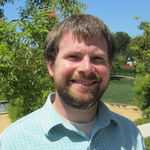AI, Computational Social Science, and the Future of Work-Speakers
From Santa Fe Institute Events Wiki
| Navigation |
SFI ACtioN Topical Meeting
Co-hosted by Willis Towers Watson
February 8th, 2018
Venue: Willis Towers Watson, 71 High Holborn, London, UK
Lord Robert Skidelsky
University of Warwick, Emeritus Professor of Political Economy

Robert Skidelsky is emeritus professor of political economy at Warwick University. His three-volume biography of John Maynard Keynes (1983,1992, 2000) won five prizes and his book on the financial crisis – Keynes: The Return of the Master – was published in September 2010. He was made a member of the House of Lords in 1991 (he sits on the cross-benches) and elected a fellow of the British Academy in 1994. How Much is Enough? The Love of Money and the Case for the Good Life, co-written with his son Edward, was published in July 2012. He is also the author of Britain in the 20th Century: A Success? (Vintage, 2014) and editor of The Essential Keynes (Penguin Classics, 2015). His most recent publications are as co-editor of Who Runs the Economy? (Palgrave, 2016) and Austerity Vs Stimulus (Palgrave, 2017).
Robert Allen
New York University, Global Distinguished Professor of Economic History, Social Science

Bob’s research aims to understand the process of economic growth. Why are some countries rich and others poor? This research is focused on measuring changes in living standards across Europe and Asia between 1600 and 1900, measuring and explaining productivity growth in English agriculture between 1300 and 1800, understanding the origins of modern technology and research and development in the industrial revolution, and studying the impact of imperialism on Asian economic growth between 1870 and 1940.
J. Doyne Farmer
Santa Fe Institute, External Professor; Director of the Complexity Economics program at the Institute for New Economic Thinking at the Oxford Martin School, and Professor in the Mathematical Institute at the University of Oxford.

J. Doyne Farmer's current research is in economics, including agent-based modeling, financial instability and technological progress. He was a founder of Prediction Company, a quantitative automated trading firm that was sold to the United Bank of Switzerland in 2006. His past research includes complex systems, dynamical systems theory, time series analysis and theoretical biology. During the eighties he was an Oppenheimer Fellow and the founder of the Complex Systems Group at Los Alamos National Laboratory. While a graduate student in the 70’s he built the first wearable digital computer, which was successfully used to predict the game of roulette.
Rita Maria del Rio Chanona
D.Phil. Candidate in Mathematics at the Institute for New Economic Thinking at the Oxford Martin School

Rita Maria is currently doing her D.Phil. in Mathematics under the supervision of Prof. Doyne Farmer. She obtained her BSc in Physics at Universidad Nacional Autónoma de México (UNAM) 2011-2016. During this period she did two summer research internships, one at Imperial College London under the supervision of Prof. Henrik Jensen and another at Ryerson University with Prof. Anthony Bonato. Her research topics involved networks and graph theory. Rita Maria worked in two consulting firms Inno-ba and Pondera, where she did time series prediction, epidemiology analysis and information gathering. She is currently interested in complex systems, combining agent-based modelling, networks, renewable energies and economics.
Steen Rasmussen
Santa Fe Institute, External Professor; University of Southern Denmark, Professor, Research Director and Center Leader, Self Organizing Systems

Steen Rasmussen's main scientific effort is to explore, understand and construct minimal living processes through bottom up assembly of protocells in the lab and to explore the relationships between living processes and evolutionary learning in different systems. Another line of research is to explore how living and intelligent technologies increasingly transform society and what it means to be human. Due to these activities he has frequently consulted on science and technology issues for the European Commission, the Danish Parliament, the German Reichstag, and the US Congress.
Brendan Tracey
Santa Fe Institute, Program Postdoctoral Fellow

Brendan Tracey works in the overlaps between statistics, machine learning, and engineering analysis in design. He is particularly interested in incorporating non-traditional ideas to more effectively use our simulation tools. Especially in high performance systems, it is difficult to measure the quality of the design, requiring a resource-intensive computer simulation or expensive physical experiment. His research addresses this problem by using data-driven techniques to inform and improve physical models, and by harnessing statistical techniques to learn when low-fidelity models are sufficient and when more accurate high-fidelity models are necessary for engineering design. Outside of these main interests, Brendan is also interested in game theory, graph theory and social choice design.
Brendan received his B.S. in Mechanical Engineering from the University of Rochester and received his M.S. and Ph. D. from Stanford University in the department of Aeronautics and Astronautics. He is currently a postdoc at the Santa Fe Institute and the Department of Aeronautics and Astronautics at the Massachusetts Institute of Technology.
Marion Dumas
London School of Economics and Political Science, Assistant Professorial Research Fellow

Marion seeks to understand how institutions work and how they shape social change. The questions she asks about institutions and about mechanisms of social change are motivated by the challenges of sustainability, which she sees as a problem of collective adaptation to a complex environment. Thus she seeks to characterize the adaptive capacity of societies as shaped by their institutions. For example, she is interested in how norms and rules evolve. She is also interested in measuring the quality of deliberation in different institutional environments, so as to eventually understand how political institutions shape social learning, and how political conflict can be structured to improve social learning. A third direction of her work is to understand how technological innovation can be directed to address collective problems.
Currently, Marion is studying the evolution of environmental laws in the United States using a comprehensive dataset of all court cases over the last 40 years. Her approach combines network analysis and text analysis. The first part of the project provided evidence that laws evolve autonomously from the shifts in power in the political branches of government, a finding that runs counter to current political economy theories of law. She is now analyzing the interaction of ideas and interest groups over time in this network of decisions. Marion has recently started a project to investigate how relationships between firms in supply chains affect the ability of these firms to coordinate their search for radical innovations. In turn, she is interested in the implication of these coordination challenges for how institutions can direct technological innovation towards the decarbonization of the economy.
Marion earned a PhD in Sustainable Development at Columbia University, with specialization in economics and political science. Prior to her PhD, Marion studied Ecology at the ETH Zurich and Earth Sciences at MIT.
Asa Calow
Co-Founder and Director of the Manchester Digital Laboratory

Asa is a creative technologist, civic hacker, DIY biologist, lapsed mathematician and one of the Manchester Digital Laboratory's (MadLab) founders. A MadLab hacker-in-residence, Asa is responsible for new project development – looking for interesting emergent technologies which have the potential to be misappropriated and re-applied in a community innovation context. He is a part of MadLab’s professional development team, running regular creative technology workshops and assisting in the technical aspects of project delivery.
Asa found himself accidentally in the technology industry at the tail end of last century. Since then he has worked for a range of NGOs, award-winning creative agencies and startups – delivering projects for a range of public and private clients including UK Gov, KPMG, AstraZeneca and Manchester Art Gallery amongst others.
Tiffany Franke
Incandescent, Principal

Tiffany is a Principal at Incandescent, a consulting firm based in New York City, where she has worked with foundations, corporations, and social sector partners to ensure a more inclusive economy in an increasingly automated world. She is currently focused on building and engaging a diverse network of influencers shaping the systems that will determine the "Future of Work" in the United States.
Tiffany explored how to engage diverse perspectives to solve important problems as co-founder and COO of Convetit, a platform that convenes small groups of experts in weeklong digital think-tanks. She worked with innovation teams from over a dozen Fortune 500s including Unilever, GE, and Pfizer to drive insight on topics ranging from smart cities, to women in tech, to the future of connected care. The seeds of this enterprise were planted through master’s research in Sustainability at Cambridge University and work with over two dozen clients across seven industries at Booz & Company.
Keith McNulty
McKinsey & Company, Global Director, People Analytics and Measurement

Keith is an ex-pure mathematician who decided he should ply his trade in how to better understand and measure people and the environments they live and work in. He has spent much of his professional career building, researching and implementing talent measurement systems and technologies.
Keith currently leads People Analytics and Measurement for McKinsey & Company, the global management consulting firm. His current interests include advancing new digital approaches to aptitude and ability assessment, measuring and understanding social and workplace interactions using devices and data, and studying the impact of the digital age on friendships, relationships and psychological well-being.
Will Tracy
Santa Fe Institute, Vice President for Strategic Partnerships

William M. Tracy is the Vice President for Strategic Partnerships at Santa Fe Institute. His academic work lies at the intersection of complex systems and strategic management, with a focus on how boundedly-rational actors approach novel problems. Will comes to SFI from Rensselaer Polytechnic Institute, where he was the undergraduate program director for the Lally School of Management and a faculty member. He is proficient in Mandarin Chinese, and formerly served as the Associate Director of CSSS-Beijing, which was jointly administered by SFI and the Institute of Theoretical Physics at the Chinese Academy of Sciences. Before entering academia, Will was a Junior Professional Associate at The World Bank, where he focused on Eastern Europe and Central Asia. Will also has private sector and entrepreneurial experience in the US, China, and India. He holds a Ph.D. in management with a certificate in human complex systems from UCLA, and a BA (cum laude) in economics from Swarthmore College. Learn more on SFI's website
Tim Hodgson
Willis Towers Watson, Head of the Thinking Ahead Group, Founder of the Thinking Ahead Institute

Tim joined Willis Towers Watson in 1998 in a general consulting and manager research role. His role became increasingly specialised, concentrating on high performance specialist managers and hedge funds, and running portfolios of managers for clients. It evolved further to focus on new investment ideas and 'thinking ahead'. Tim was a founding member of the Thinking Ahead Group which started in 2002.
Prior to working for Willis Towers Watson, Tim was a Senior Investment Consultant with Sedgwick Noble Lowndes, and before that a director at Stamford Associates, a specialist investment consulting firm. Tim was sponsored through university by Midland Bank, and after graduating he joined Midland's Electronic Banking department. Tim holds an MA in Economics from the University of Cambridge. He is an Associate of the CFA Society of the UK and is a qualified scuba dive master, which is a hedge against his investment career not working out.
